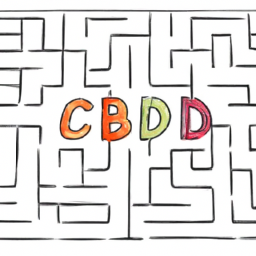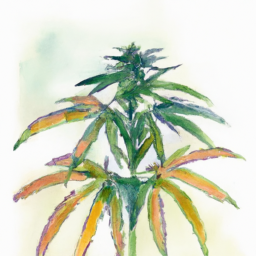
CBD is one of the most popular cannabinoids that is currently being researched. This is because it has been shown to interact with the receptors in your endocannabinoid system. It is also known to help prevent relapse in addicts.
CBD is a powerful tool for supporting wellness daily
There are many uses for CBD. It is being used for pain relief, anxiety, stress management, and more. Unlike prescription medications, CBD does not cause adverse effects.
For those seeking a holistic approach to health, CBD may be a promising supplement to consider. A growing number of studies are highlighting its benefits. Some of these studies suggest that CBD may be able to fight inflammation.
One study showed that CBD helped improve the range of motion in people with muscular arthritis. Another demonstrated that it improved sleep. Interestingly, a psychiatric clinic study found that 66.7 percent of patients saw sleep improvements after using CBD.
Many studies have shown that CBD is an effective pain treatment. Despite this, it’s still important to consult a doctor before taking any medication.

CBD interacts with receptors in your endocannabinoid system
The Endocannabinoid system is a complex cell-signaling system that interacts with various bodily systems. Its primary function is to maintain homeostasis in the body. However, it also functions to control several processes, including appetite, heartbeat, and mood.
Among its many functions, the endocannabinoid system primarily works with the CB1 and CB2 cannabinoid receptors. These are transmembrane GPCRs that are present in the peripheral and central nervous systems.
In the brain, the receptors are located in the amygdala and the hippocampus. These receptors play a major role in regulating mood and processing emotions.
Cannabinoids can be produced naturally by the body, but they can also be synthesized. When ingested, cannabinoids work with fatty acid-binding proteins to shuttle the cannabinoids throughout the body.
CBD may prevent relapse in addicts
CBD is a nonintoxicating phytocannabinoid found in cannabis that may be a promising therapy for addiction. The drug is non-psychoactive, safe at high doses, and may reduce the risk of relapse in addicts.
According to researchers, CBD acts as an inhibitory molecule that blunts cue-induced physiological responses. This may lead to reductions in cravings. It also has the potential to help alleviate withdrawal symptoms.
In a recent study, researchers tested the efficacy of CBD as a treatment for heroin-seeking behavior. Participants were randomly assigned to one of three groups, which received a placebo, an 800 mg dose of pure CBD, or a placebo plus an 800 mg dose of CBD.

CBD is not regulated like THC
A recent survey from the Consumer Brands Association (CBA) shows that one-third of Americans have bought a CBD product. However, many consumers remain confused about the actual efficacy of CBD and its role in health.
The federal government has not yet set any national standards for CBD. Instead, the FDA is responsible for regulating the product. This has left the marketplace with a patchwork of state laws. Inconsistent laws can create consumer protection challenges.
One of the best ways to bring CBD-derived treatments to the public is through a controlled clinical trial. These trials will test the efficacy of the product and will distinguish between CBD as a cure and CBD as a mere supplement.
CBD is legal in the United States
CBD is legal in the United States as long as it contains less than 0.3 percent THC, the psychoactive compound found in marijuana. Products containing more than 0.3 percent of the drug are illegal.
The FDA does not endorse the use of CBD in food products. Its regulations focus on the safety of active drug ingredients after they reach the market. Unlike other food products, such as candy, CBD is not considered safe for human consumption.
Some of the benefits of CBD are still unknown. Studies have been conducted to determine whether CBD can treat epilepsy, depression, cancer, and other illnesses. But the FDA has not approved any products for these uses. Nonetheless, there are CBD products available for sale across the country.

CBD isn’t exclusively found in hemp
The legal status of CBD has gotten confusing because of the competing state and federal laws. In addition, there are questions about whether hemp-derived CBD is legal at all.
Under federal law, cannabis products with more than 0.3% THC by dry weight are illegal. Products that are not approved by the FDA are also prohibited from being sold.
However, there are exceptions to this rule, such as CBD from hemp plants with less than 0.3 percent THC. This is called broad-spectrum CBD. Normally, the amount of CBD in these products is not more than 10 to 20 percent.
A study published in the Journal of Pediatrics found that children with autism showed significant improvements in stress levels, communication, and behavioral outbreaks when they were given CBD. Some studies have also shown that CBD can decrease pain and inflammation in humans.
Summary
- CBD is a popular cannabinoid that interacts with the endocannabinoid system and has potential benefits for wellness and addiction prevention.
- CBD is used for pain relief, anxiety, stress management, and more, and does not cause adverse effects like prescription medications.
- Studies suggest that CBD may fight inflammation, improve the range of motion in arthritis, improve sleep, and be an effective pain treatment.
- CBD interacts with the CB1 and CB2 receptors in the endocannabinoid system, which regulate mood, emotions, and various bodily processes.
- CBD may prevent relapse in addicts by reducing cravings and alleviating withdrawal symptoms.
- CBD is not regulated like THC and there are inconsistencies in laws and consumer protection challenges.
- CBD is legal in the United States as long as it contains less than 0.3% THC, but the FDA does not endorse its use in food products.
- Some benefits and legal aspects of CBD are still unknown, but studies have shown potential for treating epilepsy, depression, cancer, and other illnesses.
- CBD can be derived from hemp plants with less than 0.3% THC and has shown improvements in stress levels, communication, and behavioral outbreaks in children with autism.